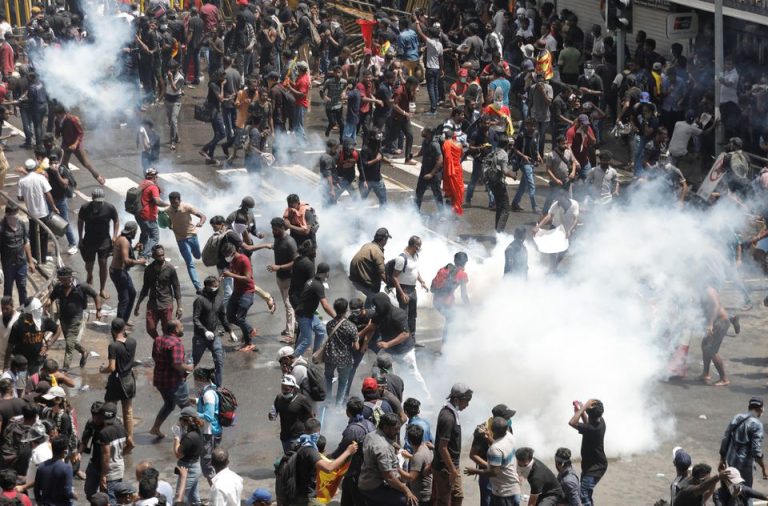
(Reuters) – A deep financial crisis has left Sri Lanka struggling to pay for imports of food, medicine and fuel and brought thousands of protesters on to the streets.
On Wednesday, a government source said President Gotabaya Rajapaksa had fled the country, hours before he had been due to step down after widespread protests over his handling of the crisis.
Here are some of the key developments in the crisis:
March 31, 2022: Demonstrators march to Rajapaksa’s private residence to protest over worsening economic conditions.April 3: Rajapaksa dissolves the cabinet, which includes his younger brother Basil Rajapaksa as finance minister, but elder brother Mahinda Rajapaksa continues as prime minister.
April 9: Protests escalate, with sit-in demonstrations outside Rajapaksa’s office aimed at removing the president to pave the way for political reforms.
May 9: Following widespread clashes between pro- and anti-government protesters, Prime Minister Mahinda Rajapaksa resigns. Countrywide violence leaves nine dead and about 300 injured.July 9: President Gotabaya Rajapaksa informs the parliamentary speaker that he plans to step down on July 13, after protesters storm into the official presidential residence. Prime Minister Ranil Wickremesinghe says he is willing to resign too. July 13: President Gotabaya Rajapaksa flees the country, according to two sources.






